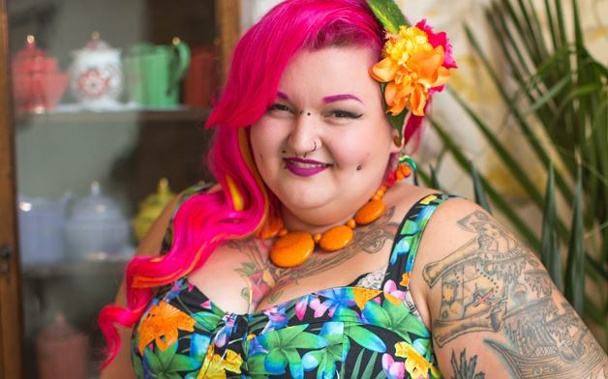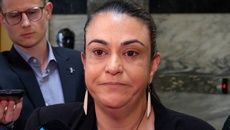
Parliament will carry out its annual review of the Abortion Supervisory Committee on Thursday. Prime Minister Bill English has already said he doesn't want to change our abortion laws, which currently classes abortion as a crime.
A call was put out for any women who'd had an abortion to share their experience, and whether they wanted to see change. These are their stories, as told to Frances Cook.
"A" was in a loving long-term relationship when she got pregnant at 18. They were using condoms, but it wasn't enough.
When she found out she was pregnant, her boyfriend was clear that he wasn't ready to be a dad.
"After having an absent father all my life, I couldn't bring myself to bring a child into the world whose father didn't want it," she said.
"Plus, I was earning the minimum wage of the time, and living with my parents.
"Not the ideal situation for raising a child not wanted by its dad."
The decision was made, but the process wasn't easy. New Zealand law requires two certified medical practitioners to certify the abortion is medically necessary or justified.
In New Zealand, legal grounds for an abortion are if the pregnancy poses serious danger to life, serious danger to physical health, serious danger to mental health, the pregnancy is the result of incest, or there is a mental or foetal abnormality.
Pregnancy as the result of rape is not grounds for an abortion, but may be taken into consideration.
"I had to go to Greenlane for meetings with three separate people to prove that my life, but most importantly my mental health, would be harmed by having this baby," A said.
"The whole process took a month.
"In the meantime I had the worst morning sickness, and couldn't bring myself to discuss my situation with anyone, because I knew no one that had had an abortion."
Abortion is carried out at specialist centres in New Zealand, usually after referral from a GP.
Doctors have the right to refuse referral for abortion if they have a conscientious objection, but are legally required to tell the patient where else they can go to receive the treatment.
Many of the women who spoke with the Herald felt dismissed by doctors, with some describing being "lectured" about the moral implications of their decision.
"B" needed an abortion when she was 19.
She was sure of her decision, but when her regular doctor wasn't available, she made an appointment with the other GP at the centre.
What happened next left her in tears.
"She sat me down for maybe 25 minutes, gave me a massive lecture on all the other options, and told me abortion was a terrible thing," B said.
"It made it 100 per cent worse. I was set on what I wanted to do, and fine with it.
"Then I went from being sure of myself, to being pretty upset.
"I've never had a doctor talk to me like that about anything else."
Eventually, the doctor told B that she wouldn't do the referral.
"That would have been fine, but that was all she needed to say.
"But instead of that she was so full on, put a real guilt trip on.
"That incident did delay me by about a month, so it ended up being a pretty urgent situation."
Of the reasons available to have an abortion, a threat to the mother's mental health is the most commonly used.
The most recent statistics from 2014 show that 97 percent of medical abortions in New Zealand were certified on mental health grounds.
"S" needed a late-term abortion after medical complications with her pregnancy.
She suffered a placental abruption, and amniotic fluid was leaking out.
Despite the physical complications, she signed paperwork saying that the abortion was needed for mental health reasons.
"I knew it was the right decision, that it was right for my family, but still had to say there would have been mental health problems," S said.
"The reality was that the infection was travelling from the baby, into my fallopian tubes, and it left me unable to have any more kids.
"Even the postmortem told us we made the right decision, because she wouldn't have lived."
S said she was realistic about the process, so was willing to sign the paperwork.
"But I did resent that that had to be the reason, even in my circumstances."
The different women who spoke to the Herald repeatedly said that the experience was difficult.
Many found it degrading to lie about their mental health status in order to qualify for an abortion.
All of them said that it wasn't right to have it treated as a criminal matter, rather than relating to health.
For "N", the knowledge of how the system viewed her was the most difficult part of getting an abortion.
"It should not be in the Crimes Act, as it is not a crime.
"Women should have the choice. We are a modern nation, and the law should be amended to reflect this."
Parliament's Justice and Electoral Committee will carry out its annual review of the Abortion Supervisory Committee.
The committee reports to Parliament each year with statistics on abortions carried out in New Zealand, and how abortion law is being managed.
It has repeatedly urged Parliament to review the Contraception, Sterilisation and Abortion Act 1977, which states the legal grounds for abortion.
In their own words
Fran Robertson
I was in my final year of high school and, despite being on birth control, I found myself in a situation that I was definitely not equipped for.
This "situation" made me violently and dangerously unwell, and despite the fact that it was deemed unsafe for me to continue with the pregnancy, I still had to declare that I was not mentally stable in order to have a termination.
Imagine being 17, and being told that you have to declare yourself mentally incapable before your can have a procedure that would save your life.
Having to sit in a room with two doctors and declare myself too mentally unstable to carry a child was the most degrading experience I have ever faced.
Afterwards, having this on my medical records changed the way doctors interact with me. There's now almost an underlying current of distrust.
I should mention that I don't feel bad at all for making the decision I made.
I can guarantee that the only reason it affects people so much is the social stigma.
"J"
I had a coil implanted the year before, which is probably the most effective form of contraception short of getting your tubes tied.
But somehow I still ended up pregnant by a friend with benefits.
My pregnancy presented with some intense pain and bleeding, because there is not enough room in a uterus for a coil and a foetus.
Despite the fact I'd been as thorough as possible in making sure I didn't get pregnant, obviously didn't want to be pregnant, and that taking the coil out to allow me to remain pregnant would likely cause a spontaneous miscarriage, I still had to go through the ordeal of explaining how having a baby would damage my mental health, to two different doctors.
At the time I was in pain and bleeding. I just remember how angry I felt at having to go through intimate details, when all it should have been about was my not wanting to be pregnant and have a baby.
Because I was hemorrhaging, I was seen as a priority case the next day.
The nurses were actually righteously pissed on my behalf that I'd had to go through the screening process when, to them, my abortion should have been a routine procedure to stop me bleeding and prevent sepsis.
The laws around abortion meant I had to wait more than 24 hours, in pain and bleeding, to get a medically necessary procedure done. Because technically, that procedure is a crime.
It certainly sowed some seeds of distrust in the medical establishment. To get the outcome you need, be prepared to lie.
"O"
The multiple levels of signoff for an abortion presume that it is a big and traumatic decision. Which I'm sure it is, for some women.
But for me the trauma was from the procedure, not the decision.
It demeans our right to decide, by acting like all women will be in danger.
Those six weeks waiting were torture. I hated feeling pregnant. I resented being made to wait and go through all those ultrasounds for a foetus I'd already decided to terminate.
I'd like to see changes that recognise some women will need help, but others just want to decide and move on.
Anything that can hasten the process and lessen the number of visits to doctors and counsellors to get signoff would really help.
"M"
I was 14, and very much not ready to be a mother. Fortunately, I had an amazing doctor at my high school who helped me with everything.
At the clinic I had to meet with a doctor the week before my scheduled termination.
I told him I wasn't ready to be a parent, and wouldn't cope.
I remember him typing things into his computer, and basically giving me reasons for the abortion.
"I bet you feel your health would be impacted? Do you think you would be a good parent at this age? Would a pregnancy affect your future education?" Etc.
The only lasting impact has been from the protesters.
The anger I feel towards them. They're another reason I am pro-choice.
They still gather around the hospital each Thursday with their signs. Three men and one older lady.
Three men with signs showing a baby, and the words "let me live, mummy".
To any other women considering an abortion, talk to someone who loves you, and someone who won't sway your feelings.
Someone who will listen and be there for you.
Take them along to every appointment you go to before the abortion. Go to a doctor you trust.
Never let anyone tell you what to do with your body.
"N"
I had an abortion when I was 18, and in my first year of university in Palmerston North.
In justifying it, my family doctor referred back to some mental health issues I had in high school.
It frustrated me that my mental health was questioned. I knew I was making the right decision, and I didn't think my mental health should have been part of the justification.
Because I knew that my mental health was fine, it made me feel like I was lying or doing something wrong by using it as an "excuse" to get an abortion.
A woman should be able to have an abortion because she knows that it is the right decision for her. Not because there is a "danger to her mental health".
It made me feel like I was not in control of my life, and not capable of making these decisions for myself.
"T"
I used mental health grounds as the reason for my abortion, telling them about my history of depression.
I told them about how my own mother suffered depression. She would frequently tell me that she wished she had died in her sleep, that she regretted having me, and wished I had never been born.
I was asked if I had considered other options such as adoption, but told them I could never do that. One of my half-sisters was adopted out as a baby, and was physically abused by her adoptive family.
For a few months afterwards I found myself dwelling on the whole experience.
I knew it was for the best, and didn't regret doing it, but I felt guilty for having done it.
From time to time I used to pull out the film with the scan images and look at the blob, and the little mark where its heart was, and felt very sad about it all.
Despite the fact I don't rationally see it as killing, or the foetus at that stage as a baby, I just generally felt that I was a horrible person and that the abortion was proof of what a bad person I was.
I think the whole experience of telling a bunch of medical professionals that having a baby would be bad for my mental health was itself bad for my mental health.
I really wish it was not necessary to portray myself as a nutter from a screwed-up family who was so useless that she couldn't look after a baby, in order to get an abortion.
All of the things I said were true, but I'm actually pretty well-adjusted. I just didn't want to have a child right then.
I felt like I was being dishonest and misrepresenting myself, and that just fed the guilt and shame that I felt around the whole process.
"G"
I had only just turned 17 at the time I got pregnant, and was in my last year of school.
I knew I couldn't bring up a child. My family isn't wealthy.
I think part of me wished that I had a wealthy, supportive family, so that I could both have a child and an education. But I knew that would never be an option for me.
In hindsight I think it would have helped to have some kind of guidance or counselling. A month waiting for the procedure is a long time.
I stopped going to school and lay in bed most of the time.
I was so nervous I didn't eat.
I remember just lying in bed watching daytime television, and eating one sandwich a day.
I lost a lot of weight. My family was preoccupied and didn't notice.
I isolated myself from all my friends, and my partner lost interest in me.
What would have affected me even more?
Bringing up a child alone at 17, struggling to make ends meet, never getting out of a low-income household, having my partner walk out on me.
Looking back, I wish I had spoken to a teacher at school. I wasn't exactly rewarded for my truancy, and it would have helped to have support from an adult.
Whether it's a friend, and adult you know, or a school counsellor, find someone to give you support. It doesn't have to be your family.
Take your Radio, Podcasts and Music with you









